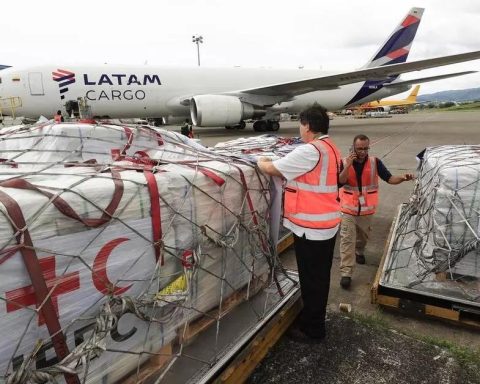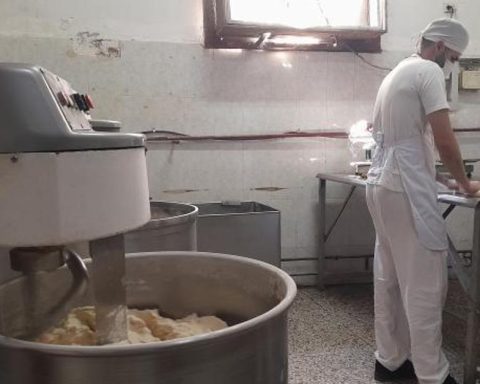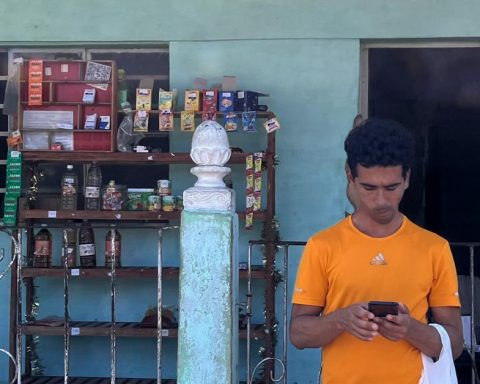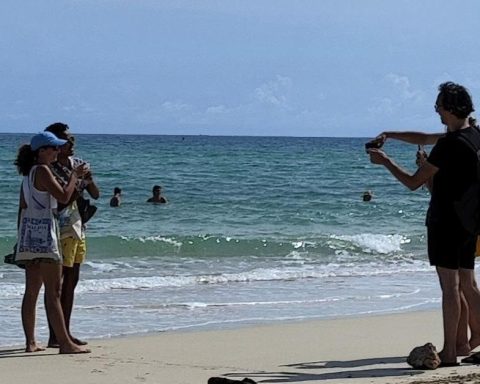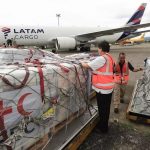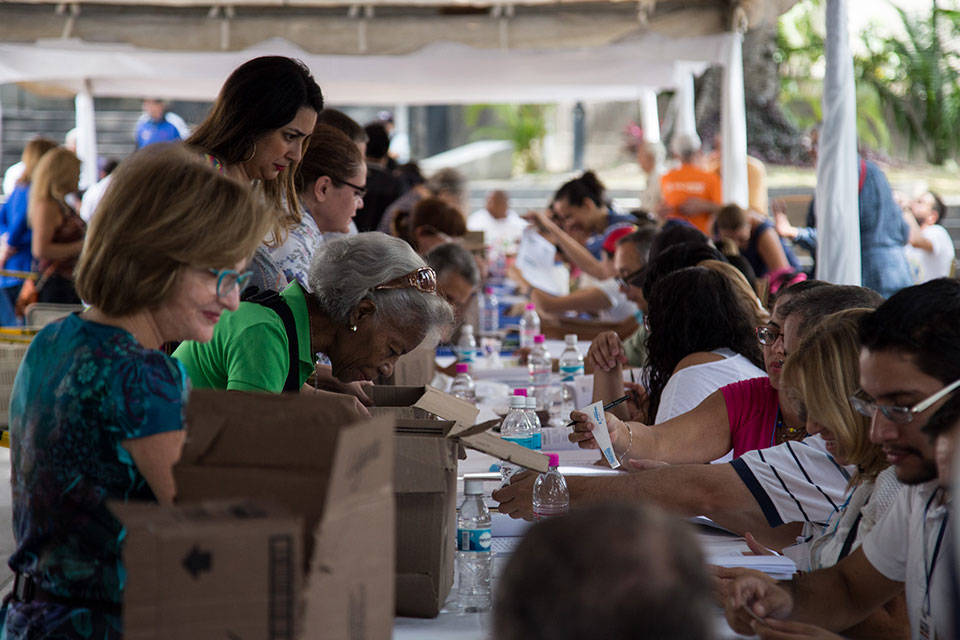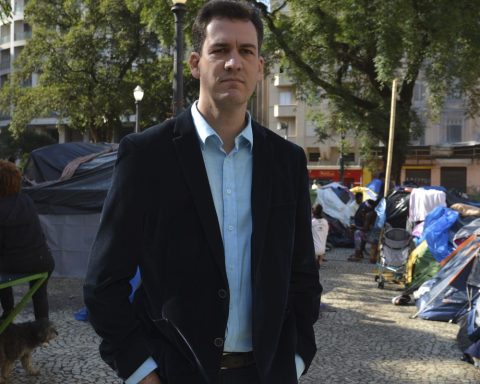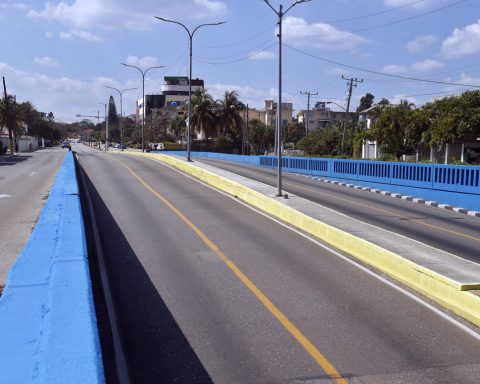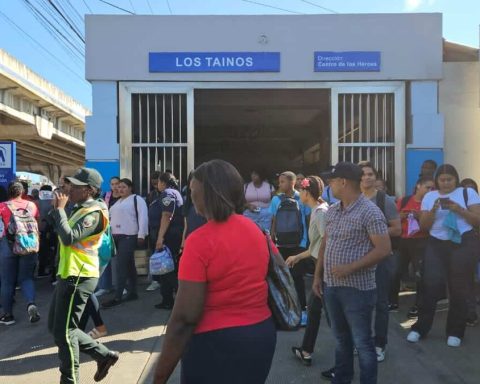A crowd of people gathered, suddenly and at full speed, in front of number 665 Carlos III street. There, two blocks from the market of the same name, and where the Pepsi Cola Company of Cuba once stood, the informal vendors usually set up shop, who this Friday grumbled about the intruders who were occupying their place.
On a step, there were several boxes of soft drinks and one of beers, and a promotional poster for the joint venture Haitech, formed by the Cuban state Copextel and a Chinese partner. With a brightly colored background, they offered a soft drink in exchange for joining a WhatsApp group and sharing the store’s address in two groups on any social network.
Even though the instructions were clear, people kept asking, “What is there to do?” On the other side, two young men, one with Chinese features and the other Cuban, were serving the crowd. The first, in poor Spanish, tried to explain out loud, but could not make himself understood. “I’m going with the Cuban because I don’t understand Chinese,” said a lady. “You have to scan the code and follow these instructions,” said the Cuban.
With a background of bright colors, they offered a soft drink in exchange for joining a WhatsApp group and sharing the address of the store in two groups of any social network.
In its On-line shopHaitech offers various household appliances and electronic devices (refrigerators, freezers, fans, computer CPUs, meat grinders, blenders, line protectors…) at prices in dollars, although not much quantity is observed: barely 14 items. The most expensive is a desktop PC at $795.80, and the cheapest is an LED bulb at $4.35. As a sale, they had a solar charger reduced from $31.45 to $10.99.
The WhatsApp group that was accessed by scanning the code was managed by two people who called themselves Gema Wang and Nico Zheng, who answered the questions of those who were entering. Many inquired about household appliances or devices that they do not have in their catalogue, such as queen pots or washing machines, which, they were assured, “will arrive in July.”
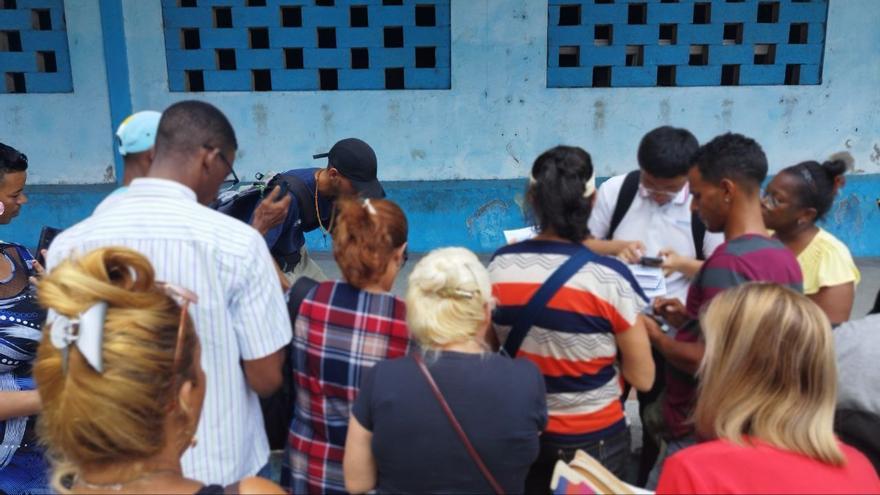
“Are they cheaper than in stores in MLC (freely convertible currency)?” Asked another potential customer. “Yes!”, they answered, despite the fact that you can only buy on the web with foreign Visa, Mastercard or UnionPay cards (that is, they could only be purchased by emigrants for their relatives on the Island).
Although Wang and Zheng welcomed them on WhatsApp, saying that they are “a Chinese company”, on their website it can be verified that it is based in Hong Kong and that it is operated jointly with the Cuban state company Copextel, belonging to the Electronic Industry Group, Automatic and Communications (Gelect).
Although Wang and Zheng welcomed them by saying that they are “a Chinese company”, on their website it can be verified that they are based in Hong Kong and that they are operated jointly with the Cuban state company Copextel
Until now, the agreements between China and the Island to create joint ventures in the field of biotechnology –one of which, dedicated to producing a drug against nasopharyngeal cancer, was praised in the official press just last month–, but hardly in trade.
Last November, after the official visit to China by Cuban President Miguel Díaz-Canel, Beijing and Havana signed a total of 12 deals of which no details were offered beyond saying that they “cover different sectors”.
Among them was a “memorandum of understanding” signed by the ministries of Commerce of both countries for the “strengthening of economic and commercial cooperation” and another with the Agency for International Development Cooperation aimed at “promoting the Chinese proposal for global development “.
In any case, the union of private foreigners with Cuban state companies has been raising suspicions for months. The last to denounce it has been the collective Cuban communistsof a Trotskyist nature, when saying that “the Cuban ruling bureaucracy is resolutely advancing towards the capitalist restoration, implementing the Chinese-Vietnamese model.”
Those who joined the group were concerned about none of this, who immediately turned the exchange of messages into a private notice board for the sale of coffee, milk or chicken. Most, however, went in and out shortly after.
The drinks – 12 Sprite, 12 orange Fanta, 24 Coca-Cola and 24 beers from the Chinese brand Tsingtao, often mocked by Cubans for their familiarity with the word singao– They flew in half an hour. That he gave them a soft drink was the only thing that mattered about Haitech to those who entered the WhatsApp group.
________________________
Collaborate with our work:
The team of 14ymedio He is committed to doing serious journalism that reflects the reality of deep Cuba. Thank you for accompanying us on this long road. We invite you to continue supporting us, but this time becoming a member of our newspaper. Together we can continue transforming journalism in Cuba.
